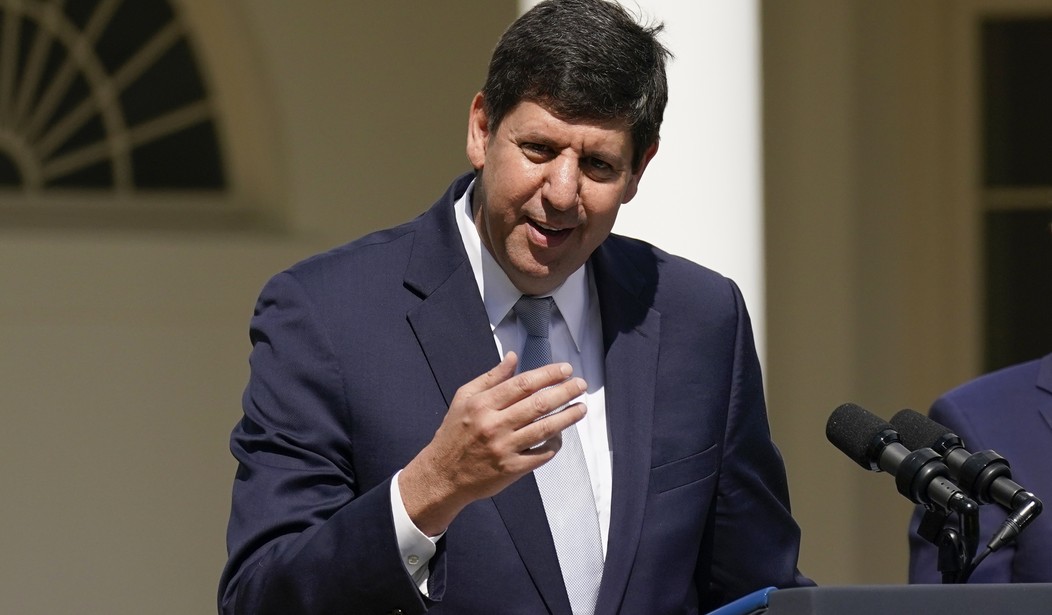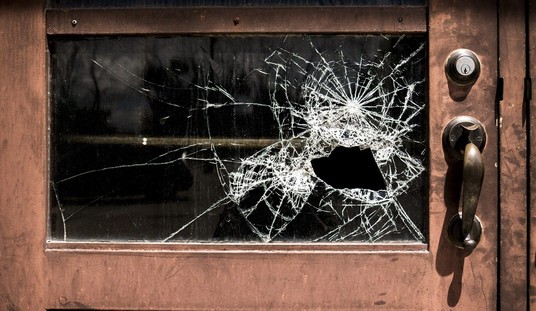In the wake of revelations that none of the ATF agents who took part in the fatal raid on the home of an Arkansas man suspected of selling guns without a federal firearms license were wearing body-worn cameras, House Judiciary Committee chairman Jim Jordan (R-OH) is demanding ATF director Steve Dettelbach provide the committee with all documents related to the raid, both before and after the search warrant was executed.
Little Rock airport executive director Bryan Malinowski was shot and killed by agents after they breached the door of his home, while an ATF agent was wounded in the foot. Malinowski was armed at the time, but it's unclear whether he fired any shots at law enforcement, and his family contends that he likely believed the agents were home intruders, disputing the ATF's assertion that agents announced themselves before breaching the front door.
That bodycam footage would have helped shed light on the actions of the ten carloads of agents who showed up at Malinowski's home, but it apparently doesn't exist. The only footage that has been released came from the family. It shows an agent covering up the doorbell camera outside Malinowski's home, but doesn't contain any audio that would confirm the agents identified themselves before they broke through the front door.
In the letter to Dettelbach, Jordan raises questions about the lack of body-worn cameras, as well as whether or not the agency conducted a "no-knock" raid.“Department of Justice policy and President Biden's Executive Order 14074 requires ATF agents—including those who conducted the search warrant on March 19, 2024—to wear active body-worn cameras during the execution of a search warrant,” the letter noted. “The Department has since confirmed to the Malinowski family that ATF agents were not wearing body cameras during the raid, a violation of the Department policy.
Jordan also questioned whether ATF agencies “complied with" a Justice Department policy that sharply limited agents’ use of "no knock" entries.
“ATF has not explained why it resorted to a no knock entry of Mr. Malinowski's home when it could have peacefully executed the warrant while he was away from his residence,” Jordan’s letter stated.
The chairman said he was concerned ATF’s raid was driven by an ideological crackdown by the Biden administration on gun owners who sell weapons occasionally without acquiring a federal firearms license.
"ATF's pre-dawn, no-knock raid of the Malinowski home coincided with the agency's implementation of a regulation to restrict the right to private lawful sales of firearms,” the letter noted. “In particular, ATF seeks to drastically expand the universe of Americans who would be classified as a 'dealer' under federal law requiring them to obtain a license to become a Federal Firearms Licensee (FFL), subjecting them to a term of imprisonment of up to five years and a fine of up to $250,000, or both.
“Mr. Malinowski exercised his Second Amendment rights and was a firearms enthusiast. Even if, as ATF has alleged, Mr. Malinowski violated federal law, it does not justify ATF’s actions that ultimately lead to the use of deadly force,’” the letter added.
Jordan's letter gives Dettelbach and the ATF until May 6th to produce all of the requested documents. Though the communication with Dettelbach doesn't demand the ATF director show up to testify before the Judiciary Committee, that request is likely to come in the near future. When Dettelbach does make an appearance on Capitol Hill, here are the five biggest questions I'd like to see posed to the gun control advocate in charge of the agency.
- Why did the ATF choose to execute the search warrant on Malinowski at his home in the early morning hours, instead of effecting a traffic stop or serving him at his office in the Little Rock airport?
- Who made the decision to engage in a SWAT-style raid on Malinowski's residence instead of doing a "surround and announce" where officers would have secured the perimeter of Malinowski's home and announced their presence, calling on Malinowski to exit the home to speak with law enforcement?
- How often are tactical teams and "no-knock" warrants used against those suspected of non-violent offenses like selling firearms without a license?
- Why were the ATF agents not wearing body-worn cameras when they conducted the raid on Malinowski's home, and has the agency identified other instances where DOJ policy has not been followed?
- What assurances can Dettelbach give gun owners that they will not be subject to similar raids once the ATF's expanded definition of who is "engaged in the business" of dealing firearms takes effect in a few weeks?
The Arkansas State Police Criminal Investigation Division continues to investigate the ATF's use of force during the March 19th raid, but their investigation is limited only to the events that morning. It's going to be up to Congress to shed some light on the decisions that were made before the agents pulled up outside Malinowski's home. I have no idea where Jordan's investigation would lead, but these questions are a good place to start.








